Louis Charles Mahe de la Bourdonnais - The Precision Positioner
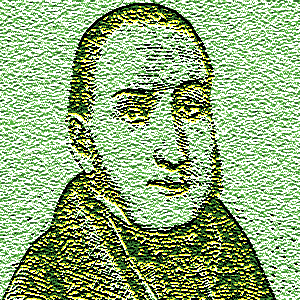
Louis Charles Mahe De La Bourdonnais
La Bourdonnais came from the nobility but aside from the chess board, where his judgement was unrivalled, he was a poor decision maker. He would lose his properties and wealth due to rashly thought out land deals.
He spent much of his adult life supporting himself and his family through his exploits in chess. He played the best players around and remained the greatest player in the world right up to his death. This did not stop him from dying penniless.
Young Louis-Charles
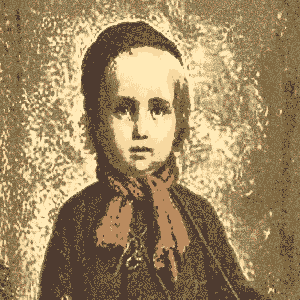
Louis Charles Mahe De La Bourdonnais grew up on Ille de Bourbon (now Reunion Island)
His grandfather had governed Ille de France (now Mauritius) and Ille de Bourbon (now Reunion Island) in the Indian Ocean. The French Navy was at this time crucial in the fight against the other European powers for control of the subcontinent.
These adventures took place in the first half of the 18th Century. Young Louis-Charles was born on Ille de Bourbon sometime between 1795 and 1797, some 45 years or so after the death of Bertrand-François. When he came of age Louis-Charles went to France to seek his fortune.
Arrival in Paris
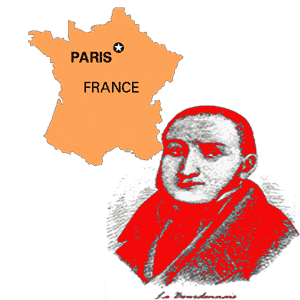
Louis Charles Mahe De La Bourdonnais arrives in Paris
He had some inheritance to start off with and he would try his hand at real estate. He would also discover chess, beginning to play the game seriously in 1818.
He did not have the best business head it would seem as he lost money in poor investments. His acumen for chess was much better however and he was able to pay his way by winning stakes over the board.
He improved as a player, facing stronger opponents all the time. Eventually he drifted towards the Café de la Régence, pulled there by the search for players who could match him.
Apprenticeship for Deschapelles

Louis Charles Mahe De La Bourdonnais arrives at the Café de la Régence
Deschapelles was able to give Rook odds to La Bourdonnais when they first played. The old master could win the stakes even playing with one Rook. He did however see tremendous potential in La Bourdonnnais and agreed to mentor him.
La Bourdonnais steadily improved over the course of three years under the tutelage of the champion. As he improved the odds Deschapelles could give and still win was reduced from a Rook to a Knight to pawn and two moves to pawn and move.
La Bourdonnais the Champion

Louis Charles Mahe De La Bourdonnais overcame Alexandre Deschapelles in 1821
For the first time in years and years there was doubt about the greatest player in France and the world. Who was the greatest? Master or student? Inevitably there would be a showdown to settle the question once and for all.
A match was arranged and it was the student who came out on top. Tragically the practice of recording chess games of the champions would not become commonplace until a few years afterwards. This match like many others was lost forever. The only thing we know is that from this juncture forward La Bourdonnais was champion. Deschapelles quit the game rather than play second fiddle.
On Tour in London
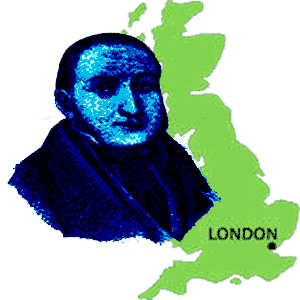
Louis Charles Mahe De La Bourdonnais went to London to face the best players in England
He went to London to play against England's finest. He enjoyed successes against William Lewis, John Cochrane and many others. He settled in London and took an English bride.
It would be here in 1834 that La Bourdonnais would play the defining contest of his career. It was a series of six matches, considered at the time to be basically a World Championship, against Belfast man Alexander McDonnell.
Mammoth Series vs McDonnell

Louis Charles Mahe De La Bourdonnais played 6 famous matches against Alexander McDonnell in London in 1834
La Bourdonnais had a good knowledge on opening theory while McDonnell it is said did not. He tended to play out of book from the first move.
Over the course of the 85 games, the Frenchman won 45 games, the Irishman won 27 and 13 were drawn. La Bourdonnais won Matches 1, 3, 4 and 5. McDonnell won Match 2. Match 6 was abandoned with McDonnell leading 5-4 due to McDonnell's ill health and La Bourdonnais' business commitments. It was never completed.
This series was studied in depth by many future champions. It contains a blueprint for middlegame magic.
Later Years

Louis Charles Mahe De La Bourdonnais was buried near his great rival Alexandre Deschapelles in 1840
He faced no more challenges of note. He scraped a living playing chess and he was penniless in his last years. He needed to be the prolific player he was, , calculating accurately, moving quickly, and playing for up to 12 hours a day to rack up the stakes.
He was awarded a pension just before he died and this was paid to his wife for the remainder of her life. He was buried in the same graveyard as Alexander McDonnell in London's Kensal Green Cemetery.
Legacy of La Bourdonnais
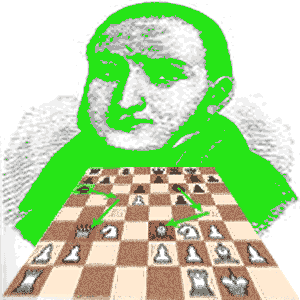
The Louis Charles Mahe De La Bourdonnais vs Alexander McDonnell legendary clash was recorded in full and richly annotated
The players appear to have been equal in the middlegame and endgame. La Bourdonnais' edge in the openings seems to have been the key to his victory. Both players displayed a strong understanding of positional fundamentals.
We also have other great La Bourdonnais games. They show him to have had a remarkable understanding of the right move in any position. He utilized this gift to overpower his opponents in the middlegame.
Morphy and Steinitz would later both rightly be lauded for introducing positional considerations into top class chess but they probably gained these ideas by studying the 85 game odyssey between La Bourdonnais and McDonnell.
Moving On
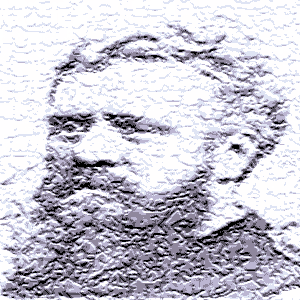
Alexander McDonnell
The great players were gaining some sort of celebrity status as the man in the street developed a fascination in their intellectual duels. The La Bourdonnais - McDonnell series was the most closely followed match in history up to that time. It created a stir with big write-ups as the games were being played.
It took two players to create that titanic struggle. La Bourdonnais was a genius but he had a worthy challenger. Someone who could make the Frenchman's legend even greater. Someone like Alexander McDonnell.






